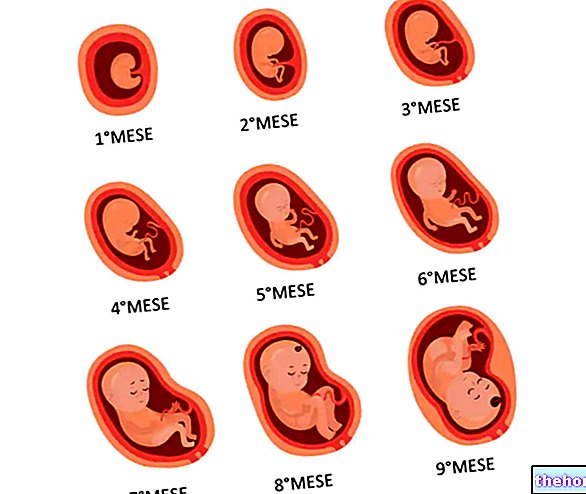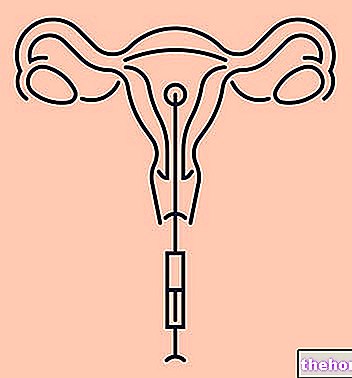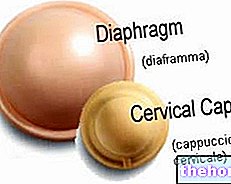interview with Dr. Carla Bosisio, Psychologist - By Eugenio Ciuccetti, Obstetrician
It has long been known that smoking is not good for health. This in general, regardless of age, sex and any other specific personal condition. However, in some particular situations of our daily life, the consumption of tobacco is even more harmful and dangerous. Both for our well-being and for that of others. For example of our children.
We explored the topic with Dr. Carla Bosisio, psychologist from Milan, specialized in Clinical Psychology and expert in hypnosis. In the past she collaborated with the Faculty of Psychology and Educational Sciences of the Catholic University and was assistant to the chair of Social Psychology of the IULM. She currently works at the Meid Center (Integrated Medicine for Women in Milan) where she deals, among other things, with childbirth and postpartum accompaniment, support in medically assisted procreation, sexual, relational and couple difficulties, anxiety problems, eating and psychosomatic disorders and addictions to smoking and alcohol.
Dr. Bosisio, what are the harm of smoking on pregnancy?
A pregnant woman who smokes has an increased risk of stillbirth miscarriages, and of having underweight babies (-200 g on average). Smoking during pregnancy can cause a delayed growth and mental development as well as a lung delay (10% lower respiratory capacity) of the baby. It is now established that not only nicotine passes through the placenta but also carcinogenic substances such as benzopyrene (lung), 4-aminobiphenyl (liver) and acrino-nitrile (bladder), with increased risk in adulthood. It also refers to new evidence. regarding the risks of some fetal malformations, such as cleft lip and cleft palate. It is correct to remember that the phenomenon does not occur in all children of smoking mothers, but the risk exists and must be taken seriously. Breastfeeding can also be compromised by smoking, as the quantity and quality of milk are altered.
Can smoking affect fertility?
In smokers, pregnancy occurs after more attempts than in non-smokers, as the possibility of fertilization of the egg is reduced by 40%. Nicotine reduces the contractility of the tubes, hindering the meeting of the oocytes with the spermatozoa. Furthermore, smoking decreases progesterone levels and makes it difficult for the fertilized egg to nest in the uterine lining, damaging its maturation. Men and women have lower results in the case of assisted fertilization treatments, this is because smoking in men can reduce fertility by reducing sperm density, sperm number and mobility and is an important factor in erectile dysfunction. In women instead it causes menopause that is about 2 years earlier than non-smokers as smoking alters the normal production of female sex hormones.Smoking can therefore prevent having a family, people planning to become pregnant should stop smoking.
Could you explain better what concrete risks the children of smoking mothers run?
As we said, the most common complications that can arise, in addition to weight problems, are related to the respiratory system and the central nervous system and SIDS (sudden death syndrome).
1. Nervous system: Nicotine also acts on the nerve endings of the fetus and is able to permanently modify the nervous system and the connections between neurons. In this regard, it is documented that the children of women smokers can manifest long-lasting neuro-behavioral disorders: they are more excitable, hyperactive and have lower intellectual performance.
2. Respiratory system: active and passive smoking are specifically harmful to the respiratory tract, increasing the frequency of respiratory diseases and asthma.
3. SIDS (Sudden Death Syndrome): the risk of cot death of the infant appears to be correlated with maternal smoking habit. Sudden death refers to the unexplained and unexpected death of the infant. The causes remain unclear, but it is certain that there are some factors that increase the risk of this happening and among these there is "exposure to smoke. Several studies conducted in England in the 90s have shown that passive smoking before and after birth can determine the onset of this event, since the cardiac and nervous activity of a newborn who has been a victim of this practice during gestation is different from that of a child who has never been exposed to smoke.
How important is the support of the family, and in particular of the partner, to be able to quit smoking permanently?
The support of family and friends is very important to the success of the smoker. On the other hand, despite the numerous public health campaigns in recent years, it seems that a fair number of women continue to smoke and drink alcohol during pregnancy; and also almost all those who stop during pregnancy do not take long after childbirth to return to bad habits. Unfortunately, fathers are often not helpful in this situation, indeed. A study by the University of Washington shows that the lack of collaboration and "sacrifice" on the part of future fathers contributes to demotivating mothers and new mothers from "get away from tobacco and alcohol. The study analyzed the habits of 412 men and 396 women with an average age of 24 over a three-year period. During this time, 131 women and 77 men had a child. According to the research, the men did not changed habits during pregnancy and after birth. Of the women who smoked, 77 percent continued intermittently or frequently while expecting their baby. Within two years after giving birth, moreover, most of the new mothers who were ex-smokers had resumed to smoke and drink exactly as before pregnancy, even pushed by the behavior of their partner. "Pregnancy is a great opportunity for the health of parents, future fathers can influence the behavior of their partners, therefore the health of their children", and this study proves it. (Source: Bailey JA, Hill KJ et al. Men "s and women" s patterns of substance use around pregnancy. Birth 2008).
So how can women and men who smoke and wish to have a child be helped?
I recommend that you contact psychologists who are experts in Hypnosis; In fact, this technique has proved to be very effective in facilitating the interruption of harmful habits such as smoking. Scientifically hypnosis is called a "modified state of consciousness": that is, it is a natural state that induces calm and mental clarity, allowing the patient to more easily access to his own emotions and feelings. The patient is thus able to awaken latent energies, inner resources that will guide him in the adoption of more adequate behaviors. The meetings can be individual or group. In both cases, the program is structured in 2 meetings of 1 hour each. The result obtained may be definitive or it may be necessary to repeat some sessions after some time.









.jpg)


















